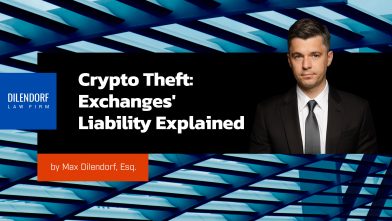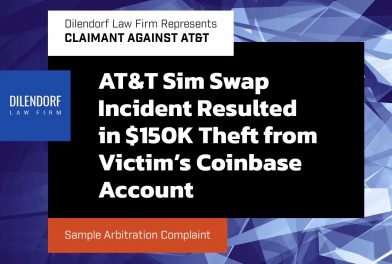3 Initial Coin Offering Pitfalls to Avoid
Initial coin offerings (ICOs), also known as token generation events, are an innovative method of capitalization for blockchain startups and experienced developers alike. Coindesk.com’s ICO tracker lists more than 150 ICOs during 2017 alone.
But despite the exuberance with which developers and Internet enthusiasts have greeted the explosion in ICOs, such offerings are subject to significant legal pitfalls for which developers must be prepared.
This article briefly considers three such pitfalls:
- The classification of utility tokens as securities;
- The ways in which white papers can lead to liability; and
- How failure to plan for taxes can derail a project.
1.Utility Tokens Can Be Securities
Virtual tokens can be broadly classified into one of two categories: security tokens and utility tokens. Security tokens are similar to traditional equity interests in a business, affording their holders voting rights or dividends. In contrast, utility tokens are more like coupons, which can be exchanged for products or services.
Most developers are comfortable with the idea that security tokens are securities under applicable law. However, many mistakenly believe that utility tokens are, by definition, not securities. The reality is more complicated, because both security tokens and utility tokens can be securities. This typically happens when the tokens satisfy the four elements of the Howey test:
- An investment of money
- In a common enterprise
- In which investors are led to expect profits
- Predominantly from the entrepreneurial or managerial efforts of others.
To avoid classification as a security, developers must ensure that their token will not satisfy at least one of the above elements. They can do this by, for example:
- Only selling the tokens when the platform on which they will be used is completed. If the utility tokens are actually functional at the time of sale, then it will be likely that any expected profits are the result of diverse market factors, not the entrepreneurial or managerial efforts of others.
- Providing users with meaningful entrepreneurial or managerial control over the fate of their investment. If token-holders are given a sufficient degree of influence over the token’s success, it will fail the “efforts of others” element of the Howey
2. White Papers Can Lead to Liability
It is customary for an ICO to be accompanied or announced through a white paper published by the token’s developer. In general, the white paper introduces the development team, describes the token and its implementation, and includes terms and conditions or legal disclaimers.
White papers can lead to liability in at least the three following ways:
- White papers and Howey. Courts and regulators will rely in part on the representations in a token’s white paper to assess whether the token is a security. This was the approach of the Securities and Exchange Commission (SEC) in its report on DAO Tokens, for example.
- Too many—or too few—disclosures or disclaimers. Determining what disclosures and disclaimers to include in a white paper is a balancing act. If too many are included, so that the white paper resembles a private placement memorandum, regulators may classify the token as a security, even if they wouldn’t have otherwise. On the other hand, if the token is a security, then omitting certain disclosures or disclaimers may be illegal.
- Consumer-protection laws. As promotional material, the white paper must comply with state and federal laws prohibiting the use of false advertising, fraud, and other deceptive practices. Failure to do so can lead to significant civil liability, often including a multiplication of actual damages, plus attorneys’ fees and court costs.
3. Unexpected Taxes Can Derail a Project
In 2014, the IRS released guidance stating that virtual-token transactions would generally be treated in the same way as transactions involving other property for tax purposes. For virtual-token developers, this means that any funds raised through an ICO will be taxable income to the developer.
Without proper planning, the income-tax liability resulting from an ICO can cripple a developer’s ability to develop the token or the platform on which it will be used. However, by understanding how U.S. tax laws apply to ICOs and planning for them effectively, the taxes due can be greatly reduced.
Conclusion
Initial coin offerings present an innovative and exciting approach to capitalization for blockchain startups. But they also pose significant legal risks for inexperienced developers. From classification as a security to violation of consumer-protection laws in drafting the white paper, to an unanticipated tax bill, developers must work closely with a knowledgeable blockchain attorney to avoid the pitfalls of an ICO.
Those interested in learning more about avoiding ICO pitfalls should contact the blockchain attorneys of Dilendorf & Khurdayan, a New York City law firm committed to helping startups and others successfully engage in ICOs and other innovative forms of capitalization.













